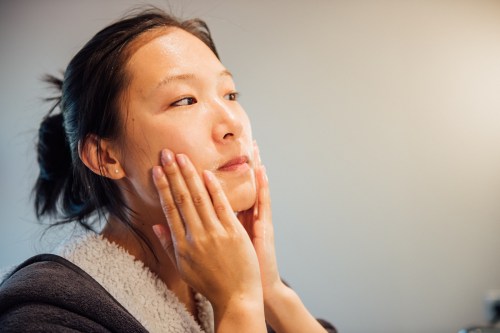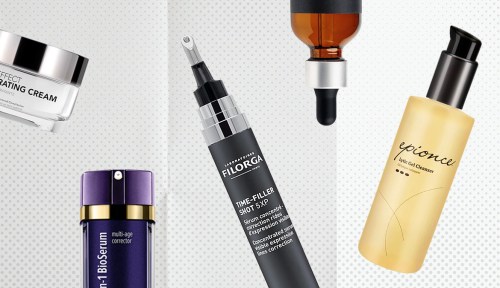Our editors independently select these products. Making a purchase through our links may earn Well+Good a commission
Over the last few years, cleansing oils have wiggled their way into the beauty spotlight. They’re celebrated for being effective, gentle, and non-stripping, and are one of the top choices for whisking away dirt, grime, and makeup on all skin types. Because of this, the shelves of Sephora and your local drugstore alike have likely been flooded with options, which has made choosing the best cleansing oil an admittedly complicated undertaking.
Experts in This Article
Boston-based dermatopathologist and founder of GFaceMD
board-certified dermatologist with Schweiger Dermatology Group
To help you navigate the decision, we asked derms to weigh in on what, exactly, you should be looking for in an oil-based face wash. Read on for everything you need to know about adding one into your own routine.
What is cleansing oil?
Cleansing oils are pretty self-explanatory: They’re oils that use the properties of “like dissolves like” to remove dirt and oil from skin rather than tapping harsh soap ingredients that strip skin. “Cleansing oils that are mixtures of a single oil or blend of oils without surfactants or emulsifiers,” says Michele Farber, MD, a board-certified dermatologist with Schweiger Dermatology Group in Philadelphia. “The oil [in the product] helps to attract and remove excess oil [from your skin], but does not over dry your complexion.” One note: Now that cleansing oils have become popularized, some do contain surfactants to take them up a notch, which means that they might be more drying than traditional oil cleansers. Read labels to make sure you know what you’re getting and that it will agree with your skin type.
Water-based and surfactant-based cleansers, which work by breaking down the dirt on your skin using cleansing agents that raise your skin’s pH, can dry out your complexion; however, oil-based cleansers usually don’t even have a pH. “It is thought that oil cleansers eliminate excess oil because they mimic the molecular structure of skin oil, which enables them to engage with the excess oil and remove it without robbing your skin of all its moisture,” says Gretchen Frieling, MD, a triple board-certified dermatopathologist based in Boston.
The benefits of cleansing oil
1. Whisks away makeup
Cleansing oil is great for removing makeup. Massaging oil into your skin helps to dissolve foundation, lipstick, and even mascara, which you can then easily wash away with water. Use it as the first step of a double-cleansing routine. Then, follow with a gentle water-based cleanser to ensure your complexion is really clean on days you’re wearing lots of makeup.
2. Non-stripping
“Cleansing oils balance the skin’s natural oils, which keeps your complexion nourished and moisturized, as opposed to foam-cleansers, which can strip the skin of its natural moisture and leave it dry,” says Dr. Frieling. “Cleansing oils can actually help protect your natural lipid layer as well as safeguard the good bacteria that reside on the epidermis.” Just be sure to follow up with other moisturizing ingredients in your serums and moisturizers to ensure that your skin barrier stays protected and intact.
3. Works on all skin types
Because cleansing oils are among the gentlest of the cleansing options, they work for most skin types, but are particularly great for dry and sensitive skin. “Oil-based cleansers work on all skin types, says Dr. Frieling. “You would use them if you are noticing your water-based cleanser is resulting in drier skin or irritation. Oil-based cleansers can be more soothing and add additional benefits like minerals and antioxidants.” There is some debate amongst derms about whether people with oily or acne-prone skin should stay away from cleansing oils, due to the fact that some formulations can cause breakouts.
How to choose the best cleansing oil
Not all cleansing oils are created equally, so it’s important to familiarize yourself with the ingredient list of any kind you choose—and please, don’t just use whatever cooking oil you’ve got lying around in your kitchen cabinet on your complexion. “It is best to use formulations specifically made for facial cleansing, and avoid non-cosmetic formulations like plain coconut, olive, or mineral oil,” says Dr. Farber. “Lighter oils like squalane, rosehip seed, and grapeseed oil are light to avoid clogging but also provide hydration.”
The best cleansing oil options, according to derms
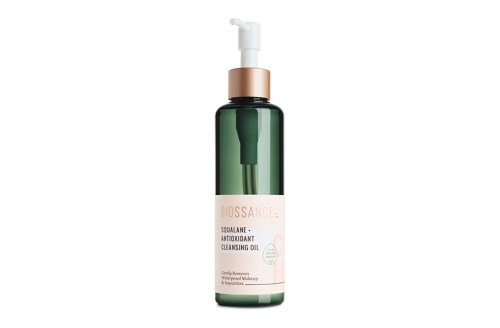
Biossance Squalane + Antioxidant Cleansing Oil — $30.00
“Squalane is thought of as one of the most effective facial oils as it is hydrating,” says Dr. Frieling, who’s a fan of this product. “It is also sufficiently gentle that it won’t irritate sensitive skin when cleansing the skin. This formula includes primrose and sunflower seed oils to offer moisture and antioxidants while removing makeup.”
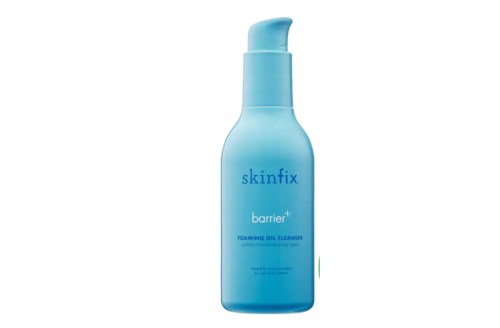
Skinfix Barrier+ Foaming Oil Cleanser — $28.00
If you’re not sure if an oil cleanser is for you, consider this one an easy introduction to the category. “This product is for people who want a sort of hybrid as the texture is not as thick as a fully oil-based cleanser,” says Dr. Frieling. “This formula uses a foaming agent paired with coconut oil to provide the cleansing of the oil while also foaming off the excess to leave the skin silkier and more supple.”
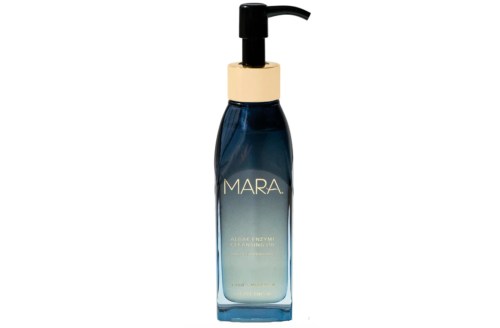
Mara Chia + Moringa Algae Enzyme Cleansing Oil — $58.00
For a cleansing oil that does it all in a single step, look no further than this exfoliating option. It’s made with fruit enzymes (which have a teeny, tiny granule texture) to exfoliate, and chia and moringa oils, plus marine botanicals and squalane, to leave skin nourished.
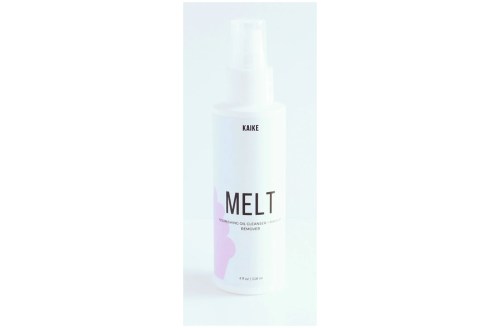
Kaike Melt Oil Cleanser — $25.00
Made with a blend of antioxidant-packed oils (including grapeseed, apricot, and hemp seed), this cleanser literally melts away makeup while also nourishing your skin barrier and helping to protect it from environmental stressors.
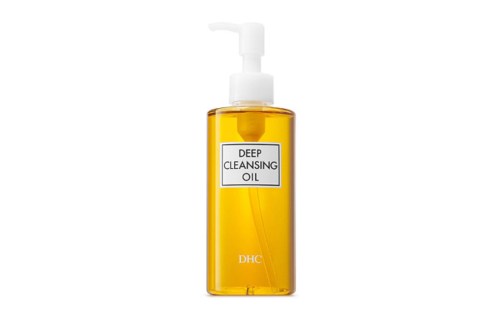
DHC Deep Cleansing Oil — $28.00
Double cleansing has long been a mainstay in Japanese skin-care routines, and this J-Beauty cleanser is one of the best of the best. It’s formulated with olive and rosemary leaf oils, plus vitamin E, and is known for its ability to remove even the most stubborn remnants of waterproof mascara.
Got more questions about washing your face? Check out the video below.
Want even more beauty intel from our editors? Join Well+Good’s Fine Print Facebook group (and follow us on Instagram) for must-know tips and tricks.
Sign up for the Well+Good SHOP Newsletter
Get exclusive deals on wellness, beauty, fitness, and food products that have been hand-picked by our editors.
Got it, you've been added to our email list.
